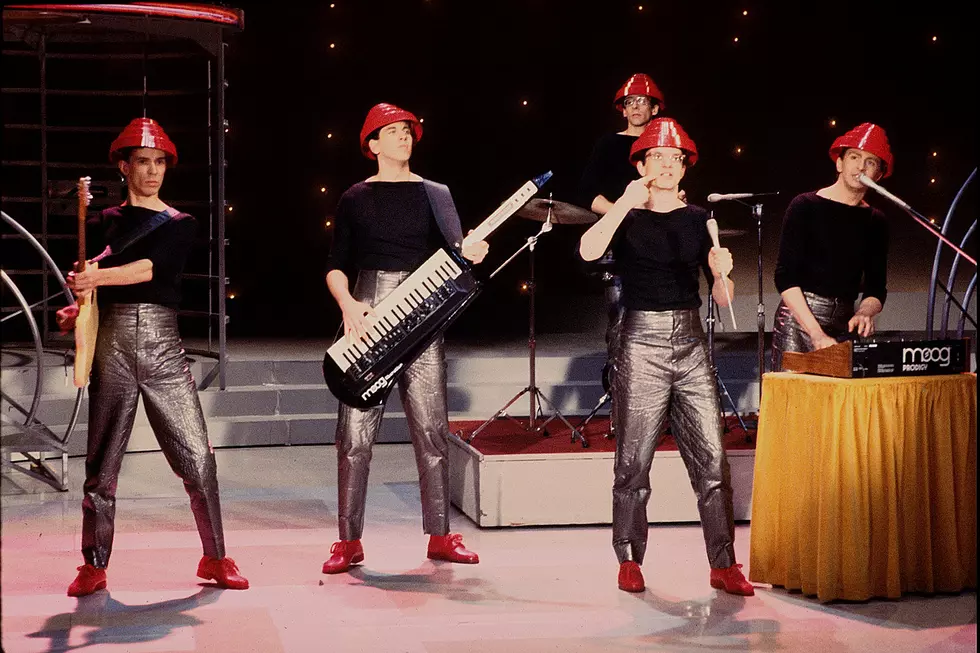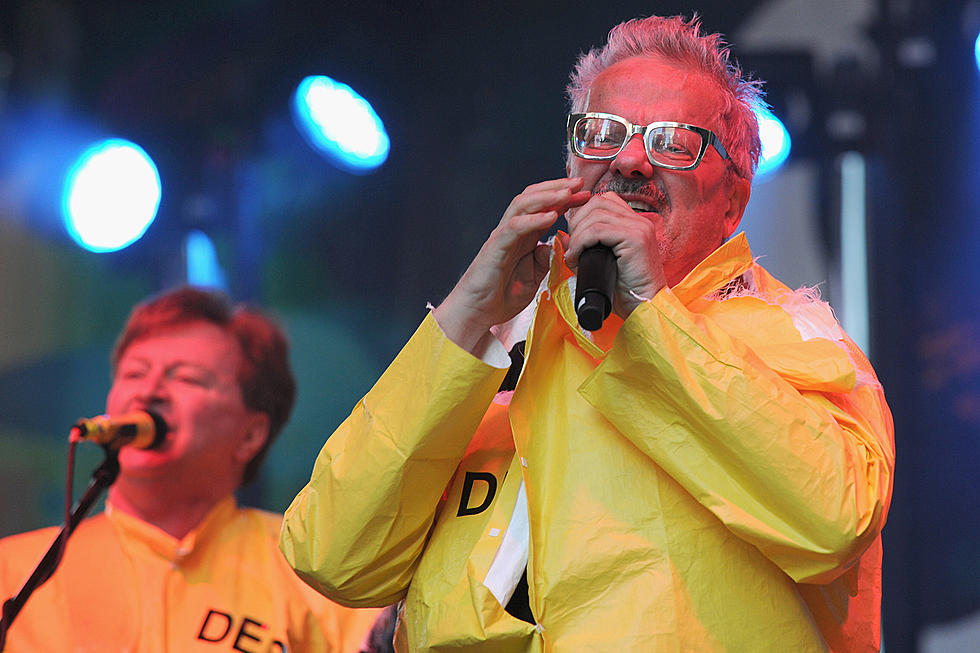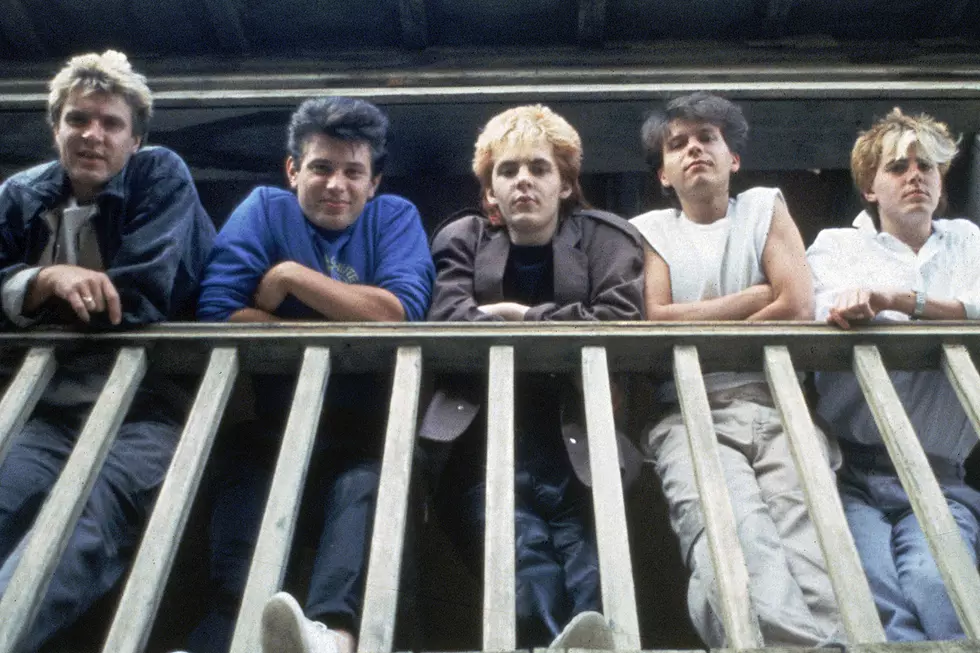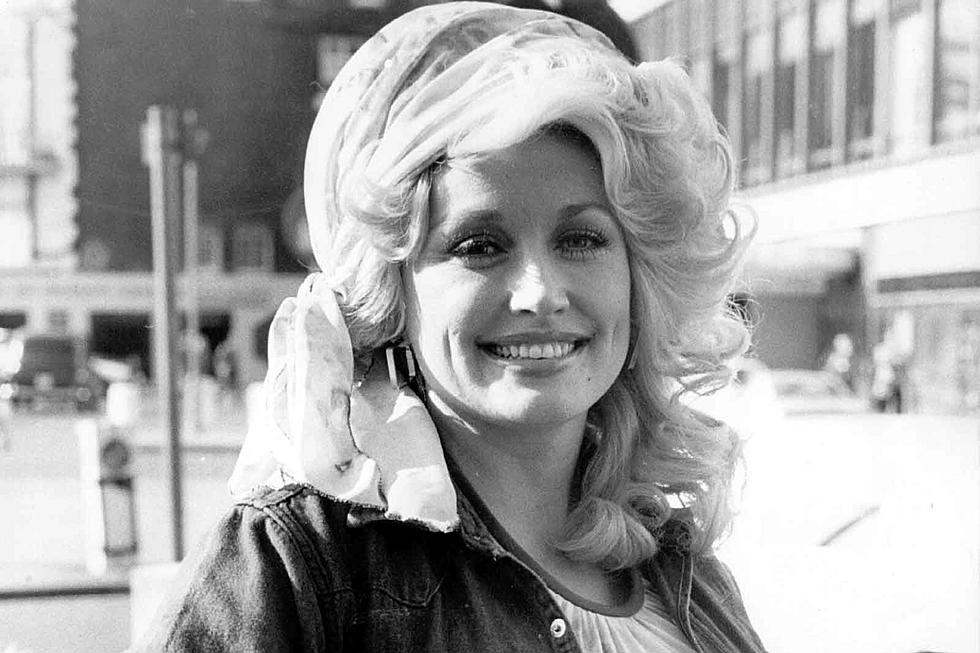
5 Reasons Devo Should Be in the Rock and Roll Hall of Fame
Devo had been eligible for 16 years when their first Rock & Roll Hall of Fame nomination arrived in 2018. They've since earned second and third nominations in 2021 and 2022.
Why the wait? "It took this long for Devo to be nominated simply because their highest charting song, 'Whip It,' only got to No. 14," said David Giffels, co-author of the biography Are We Not Men? We Are Devo! "The history of this process holds that a band gets in either – and mostly – because of popular commercial success or singular artistic influence.
“Critics had a hard time figuring Devo out initially, and they were constantly subverting both the commercial and critical systems," Giffels added. "So, they sort of undermined the usual expectation of a rock band in terms of its route through the Rock Hall sausage machine."
Gerald V. Casale and Mark Mothersbaugh were art students moonlighting in the music world while attending Kent State University. They were there on May 4, 1970, when the National Guard shot and killed four college students and injured nine others during a protest. De-evolution was happening before their eyes.
The band's lineup solidified by 1976 when Casale and Mothersbaugh were joined by their respective brothers, both named Bob, and drummer Alan Myers. From there, they slowly infiltrated the mainstream, influencing generations of artists along the way. Here are five reasons why Devo's next stop should be the Rock Hall:
They Made One of Rock's Best Debut Albums
David Bowie famously announced during a 1977 gig at Max’s Kansas City that he was going to produce Devo’s debut album, and that helped secure the band a major-label record deal. Brian Eno ended up working on most of 1978's Q: Are We Not Men? A: We Are Devo!, which immediately found fans with its herky-jerky interpretation of the Rolling Stones’ "(I Can’t Get No) Satisfaction.” The album’s other tracks showed that there was much more to Devo. “Jocko Homo” and “Uncontrollable Urge” revealed punk roots, while other tracks showed off their experimental nature.
Not Just a Band but an Art Project
A photo of golfer Chi Chi Rodriguez was used for the early “Be Stiff” single as a comment on commercialism. They made a short film all about their theory of de-evolution. And they were one of the first American bands to embrace music's next-gen medium: “They pioneered the use of video, predating MTV, and created a new kind of art – the music video – within the rock 'n' roll genre at a time when very few new frontiers were left," biographer David Giffels said. "Devo owned the art of video, uniquely and with complete authority.”
They Were Sincere About De-Evolution
Mark Mothersbaugh and Gerald Casale believed that modern society hit its peak and was making a downward slide in the form of de-evolution – that mankind was regressing biologically and as a society. This increased conformity among the masses led to the group's famous yellow hazmat stage outfits, stiff organized movements and songs that embraced and mocked cultural norms. “Let’s be honest, is there any question that de-evolution is real?" Casale later asked UCR. "Did you think we were joking?”
They Managed to Push Their Way Into the Mainstream
Even though their debut album was certified gold, 1980’s Freedom of Choice was even bigger, selling more than a million copies – thanks, in part, to the hit single "Whip It." Over the years, they've released studio LPs, live records, compilations, EPs, singles and a soundtrack, and are one of the most easily recognized bands from the era. Along the way, Devo made some high-profile fans, including Neil Young, who included the band in his 1982 movie Human Highway. Mark Mothersbaugh and Gerald Casale have worked on, separately and together, music used in commercials, TV shows and movies, including Pee-wee's Playhouse, a Diet Coke ad and several of director Wes Anderson's acclaimed films.
Their Influence Is Huge
Devo's famous fans and early champions include David Bowie, Brian Eno and Neil Young, but their influence since then has included bands like Nirvana, Pearl Jam and Arcade Fire, all of whom have covered the group onstage or on record. Devo's robotic rhythms can be heard in countless punk, New Wave, college rock and indie-rock artists throughout the decades. "If you were going to identify a band from the New Wave genre, which certainly deserves a presence in the hall, Devo defined the sound and the look in a quintessential way," Giffels said, "and with more artistic and cultural depth, in my opinion, than any other candidate."
Top 40 New Wave Albums
More From KOOL 101.7










